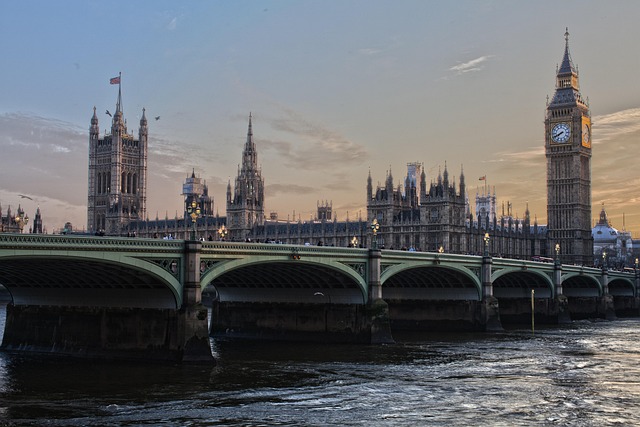For the past 25 years the UK’s economy has relatively flatlined, and now wealthy are packing their bags.
Here’s what happened:

And, as a global world power, the Pound-Sterling pretty much disappeared at the advent of the petro-dollar. US Treasuries became insurance, and the US dollar rapidly expanded as the world’s global reserve currency.

In order to compensate for their currencies loss of purchasing power in the global market the UK started to eat itself internally. Following the US Dollar, they had devalued their dollar, increasing deficit spending in peacetime as if it were wartime. Deficit spending only increased after the US Great Financial Crisis (GFC).

The UK increased their purchases of US debt, which made their currency more powerful over time. In turn, holding US Treasuries as a reserve asset in their Central Bank backed their debt as well. You can see the decline in their 30-year bond yield, below.

Despite reducing central government debt, their treasury yields continue to rise.

Instead of cutting spending, the UK government has chosen to increase dependence on their welfare system through mass immigration and then increase taxes their richest citizens. They increased capital gains tax, inheritance tax, and recently, abolished the non-domicile (non-dom) tax regime, which taxes all residents on worldwide income and gains.
As a result, those that have investment capital, about 16,500 millionaires are estimated to be leaving the UK in 2025.

The departure of the wealthy is not a new phenomenon—it’s a recurring signal of economic distress, seen across centuries and civilizations. When the elites flee with their money, it often foreshadows broader decline, and even collapse.
History demonstrates with three examples:
- The Fall of the Roman Empire (4th–5th Century): As the Roman Empire grappled with economic mismanagement, heavy taxation, and rampant inflation, wealthy landowners and elites began relocating to less-taxed provinces or barbarian-controlled territories. By the 4th century, excessive taxes to fund military campaigns and bloated bureaucracies drove patricians to transfer their wealth to regions like Gaul or North Africa. This capital flight weakened Rome’s tax base and economic stability, accelerating collapse by 476 AD.
- Venezuela’s Collapse (2000s–2010s): Under Hugo Chávez’s socialist policies, Venezuela imposed punitive taxes and nationalized industries, targeting the wealthy and foreign investors. From 2003 to 2015, an estimated 1.5 million citizens, including many HNWIs and skilled professionals, fled to countries like the U.S., Colombia, and Spain, per UNHCR data. Capital flight drained Venezuela’s economy, with foreign direct investment plummeting from $3.7 billion in 2005 to negative $1.4 billion by 2015 (World Bank). Hyperinflation and economic collapse followed, with GDP shrinking by 65% from 2013 to 2020.
- Weimar Germany’s Capital Flight (1919–1923): After World War I, Germany faced crippling reparations and a weakened economy. High taxes and inflation, culminating in hyperinflation by 1923, drove wealthy Germans to transfer assets to Switzerland or the Netherlands. By 1922, capital outflows reached an estimated 10 billion marks, according to historian Niall Ferguson, weakening the Reichsbank’s reserves and encouraged economic instability. The UK’s rising debt (99.4% of GDP in 2025, per ONS) and dependence on U.S. Treasuries mirror Weimar’s reliance on foreign capital, risking similar vulnerabilities.
Now the UK finds itself at the same crossroads that brought down empires and destabilized nations before it. The erosion of Sterling’s global clout, decades of deficit-driven self-cannibalization, and the steady squeeze of higher taxes on its most productive citizens have created a familiar pattern:
Elites withdrawing their capital.
Rome, Weimar, and Venezuela each show that once the wealthy exit, decline accelerates—not just economically, but politically and socially as well.
If Britain cannot reverse course by reducing its dependence on foreign debt, restoring fiscal discipline, and creating an environment that rewards innovation rather than punishes success, it risks becoming another cautionary tale for the history books.







